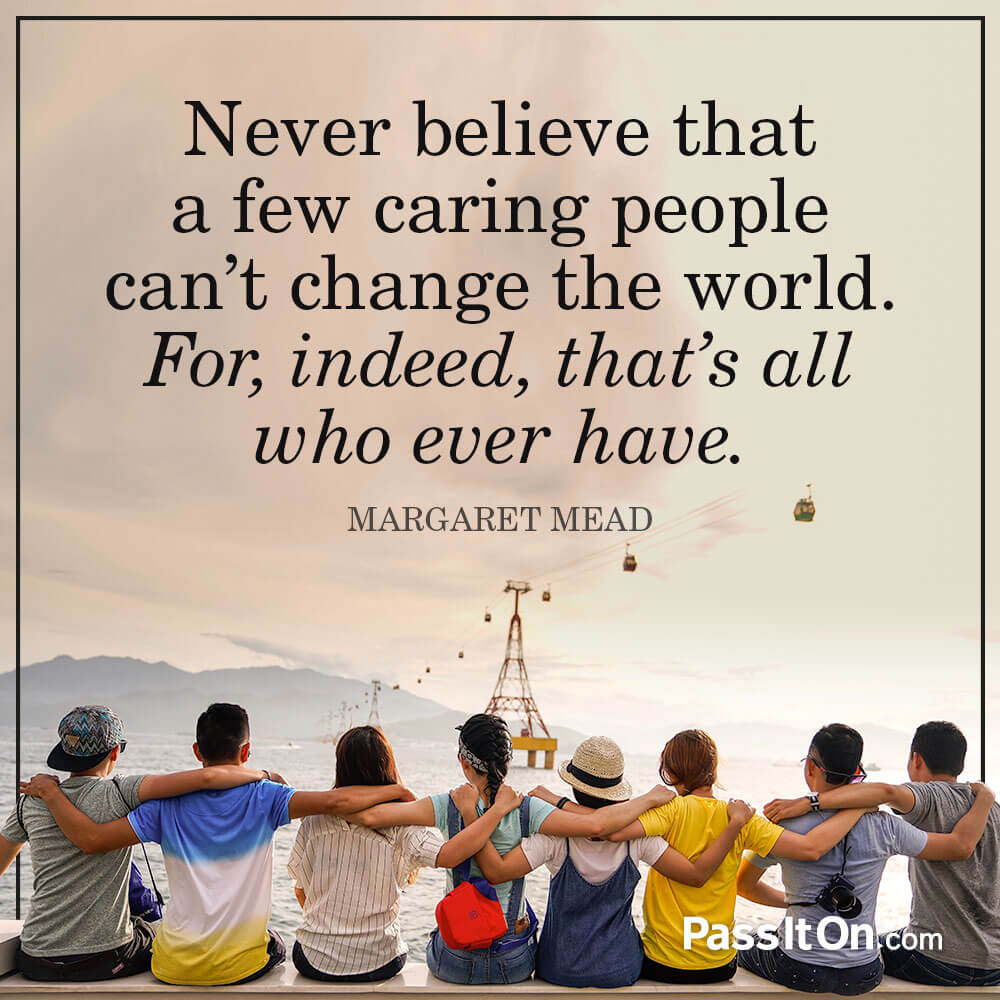Attention Caregivers Everywhere: November is National Family Caregivers Month, and I have yet to see one commercial or one announcement that says, “hug your caregiver and celebrate their efforts.” So, I will make my own announcement here in hopes that those who read this will pass it on and encourage any caregiver who tirelessly gives of themselves for the benefit of others. I have observed people like Mark deRoo and Kathy Henry from afar and want to salute and honor their devotion.
Virtually 1 in 4 people over forty-five in the United States is the primary caregiver to older parents, grandparents and other family members who can no longer function independently.
Caregiving can be emotionally and physically demanding, and caregivers report frequent mental distress. It is common for adult caregivers themselves to have two or more chronic diseases. Caregiving affects a caregiver’s life in a myriad of ways: their ability to work and be productive while they are working; their ability to engage in social activities and relationships; their ability to care for themselves first and maintain good physical and mental health.
Generally, family caregivers are the primary source of care. Oftentimes, they are not trained for the role and not paid for it either. They must quickly become a part of the professional care team and they become the lifeline to the person who needs care. They also become the surrogate decision maker.
While Chris and I were on our recent vacation to Sedona I received a call that he needed to schedule another test. We’d just had a biopsy and a CAT scan, both which came back showing no new evidence of any cancer found at that site. So why does he need another test? It was unsettling to be sure, but we decided to ignore it and just enjoy the full panorama of the red rocks of Sedona.

Thank goodness we didn’t get all up in arms and let one phone call destroy the joy and peace we were feeling. It was part of the information relay that gets lost in translation with today’s digital world. After a bit of questioning and uncovering who prescribed it and when, we all realized that it was for the CAT scan that had already been done and read! A useless waste of anxiety could have clouded our time away, but we have come to understand that the normal sequence of things can get askew. This is the role of the caregiver–to determine what is and what isn’t important. What is and what isn’t real.
So, we salute all family caregivers today and every day of November. You are the one person who knows everything that’s going on. You are the one person that has a huge influence on how your loved one deals with his/her illness. You are the one person that can get to the heart of the matter and solve the problem. You are the primary communicator of all things positive and negative. You are the Captain of Encouragement, and you need encouragement too.
Here is an article I was asked to write earlier this year: Caregiving and Thriving? Can they Coincide? (babyboomers.com) I hope that it provides some encouragement to all the family caregivers out there today. What you do every day and night matters. Make sure your vessel is full. Think of a caregiver you know that could use some encouragement. Translate your thinking into action: send them a note, give them a call, stop by, go to lunch, go for a walk together. A small token of support can go a long way. It is always good to openly give appreciation and praise to those, especially family members, who provide care to others. One of the first and best ways is to simply, Acknowledge Them.
